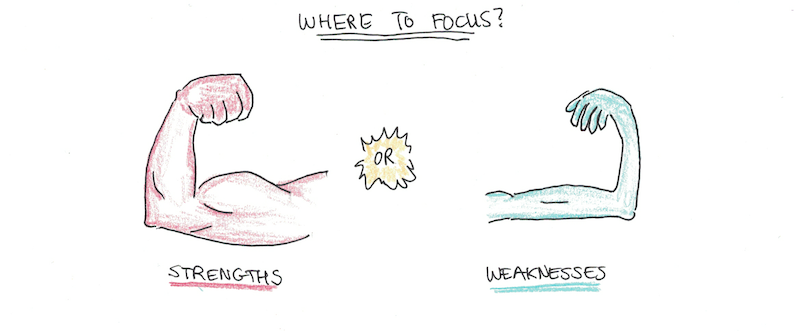A carefully calibrated image sometimes slows us down in development, especially in a leadership position in business. Why is the opportunity to show your vulnerability the way of strong and successful people?
“I felt like my training session with the team was going well until the CEO suddenly left the room. We were in the middle of a group process and people were just starting to open up…” says change consultant Gustavo Rosetti. It helps the participants of working meetings to concentrate on tasks and solve them most effectively, helps to create a comfortable atmosphere and mutual understanding between people.
We reflect each other
Research has shown that our brain reflects what others feel and do. We may not be aware of the signals the brain is reading, but the body is responding. That’s why we smile in response to a smile, explains Rosetti. And if we are smiled insincerely, we are likely to feel uncomfortable. Therefore, in teamwork, as in any communication, sincerity is important.
One of the participants in the training, the CEO of the company, realized that she was no longer ready to be «good for everyone.» People around her used her to their advantage. She had no intention of leaving the team, but from now on, her own goals and aspirations became a priority. This happened after she, at the suggestion of Rosetti, wrote her own obituary.
Openness can evoke empathy. This is a great power, and it’s all about understanding. It helps us see the uniqueness of the other
Both she and her colleagues gradually opened up to each other. “It makes us visible to others,” says the facilitator. When someone close to us suppresses their feelings, we cannot recognize them and determine that the person, for example, is angry or upset. But at the same time, if we believe the results of research, his anger can increase our blood pressure.
Openness can evoke empathy. This is a great power, and it’s not about pity, but about understanding. It helps us to see the uniqueness of another person, to respect his ideas, thoughts and experiences. And find ways to communicate.
Openness and vulnerability
But it takes courage to be open. Openness comes with vulnerability. Is it as scary as some people think?
Leaders are often taught to keep their distance and create a perfect image. Look flawless, control others and do it with confidence. Revealing a vulnerability to a team is considered a sign of weakness. The director of the company, who had been training with Rosetti, did not leave the room because she was dissatisfied with her team. She no longer felt comfortable in her own skin. Her employees were able to open up, but she was not. When she tried, she felt naked and ran away.
A team, like a family, is a system of interconnected elements. System transformation begins with personal change. The “revolutionaries” in the business world are the kind of rebels who dare to be vulnerable and allow themselves to make mistakes. Citing Steve Jobs as an example, Rosetti writes: “They ask questions that no one else has. They look at the problem from different points of view. They don’t pretend to know all the answers. Don’t be afraid to look ignorant or stumble.»
By admitting our imperfection, we are open to new ideas and growth. We do not break under the pressure of unexpected problems
These people break the rules, but in a positive and productive way. They are not born — everyone can become such a «rebel» and a pioneer, discarding the conventions of the image and allowing themselves openness and vulnerability. This requires strength.
Two weeks later, the CEO called Rosetti. She found the strength to open up to her team and tell what prompted her to leave the training. Share your thoughts and ideas. Her openness evoked a response and personal sympathy. As a result, the team became even more united and effectively solved business problems.
A green reed that bends in the wind is stronger than a mighty oak broken by a storm. Vulnerability is not a weakness, but an acceptance of one’s shortcomings and weaknesses. By admitting our imperfection, we are open to new ideas and growth. We do not break down under the pressure of unexpected problems and new circumstances, but flexibly adapt to them. We let innovation into our lives, discover the ability to be creative and inspire others.
“We are all waiting for our leaders, colleagues or family to do something more. But what about ourselves? Rosetti writes. Sincerity and empathy are catalysts for change. A simple human weakness can do more than a perfect image.»
About the author: Gustavo Rosetti is a change consultant.










